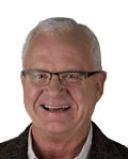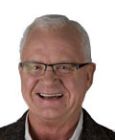Depression
What You Should Know About Treating Your Depression
Some things can’t be fixed; they can only be managed.
Updated August 8, 2023 Reviewed by Ekua Hagan
Key points
- Healing from depression is possible, but relapse is common.
- Sadness is not an essential symptom of clinical depression.
- Recovery from depression will be slower than anyone would like.

Disclaimer: This is my experience, not medical advice.
Part I
Depression: I’ve studied it, treated it, and experienced it, but neuroscientists have a lot yet to discover about the brain.
I believe:
- Healing is possible, but relapse is common.
- Recovery will be slower than anyone would like.
- Risk factors can be reduced.
- Patients should be part of the treatment team.
In 1977, George Engel described the biopsychosocial model.1 Bio refers to physical and genetic elements, psycho to developmental ones, and social to current stresses. The importance of each varies over time and from person to person. All three elements must be addressed for treatment to be successful.
Depression distorts time
People assume their current mood is their baseline. They can’t remember a time when they felt good, and they doubt they ever will. Others may recognize their mood changes before they do. Comments such as, "You don’t seem like yourself" will be angrily dismissed.
People enter treatment with a sense of urgency. Depression is among the worst of human suffering. It removes joy and creates negative feedback loops that impact health and relationships.
It also distorts the perception of time; minutes seem like hours. When they hear effects may take a minimum of six weeks to see improvement, discouragement escalates. Commonly, the prescriber and their loved ones see improvement before the patient feels it. If we say, "You seem to be feeling better," they respond, "Not yet."
Treating a chemical imbalance
Personal and family histories help determine if there is a significant biological link: Have prior treatments been tried? What worked or didn’t work? Have others experienced depression? Have there been suicides? What medications have other family members taken that helped or didn’t help? Answers provide helpful information in developing a treatment plan. Symptoms called vegetative symptoms (sleep, appetite, energy) suggest a problem with brain chemistry.
Choosing the right medication is a combination of skill, art, and luck.
Placebo effects
Medications should not be prescribed only for a psychological effect, but even antibiotics have a placebo effect. People believe they will feel better. The placebo effect is only bad if it is the only effect of the medication.
All medications are effective. Sometimes. For some people. There are no “bad” medications, but they may be bad for some but good for others.
Although the antidepressant effects of the medications are much less robust than we would like, modest effects can be lifesaving.2
Selecting a medication
Providers select a medication based on:
- The symptoms
- The side effect profile of the medications
- What has or hasn’t worked
- A personal or family history of prior response
No clinically reliable tests predict which medication will work for which patients. Providers use their knowledge of medicine, experience, and collaboration with the patient as a guide to decision-making.
Prescribers initiate a low dosage to test for side effects. If the medication is tolerated, dosages are increased. A medication may not be effective if the dose is too low or it hasn’t been long enough. These delays are further frustrating for patients and their families.
Sleep is one target symptom. Sleep deprivation makes people more irritable and physically and mentally less resilient. It accelerates despair. Sleeping excessively increases fatigued and aggravates feelings of failure. Good sleep is essential to recovery. If a person can't sleep, a medication that is more sedating may benefit. If they are sleeping too much, a more energizing medication is preferred.
Pushing pills
A frequent criticism against psychiatrists is: "All you do is push pills."
Medications frighten some people. They may think they aren’t as sick if they take less than prescribed or take them irregularly. In their urgency to feel better, others demand a “magic bullet.” They want a quick fix to avoid dealing with painful life experiences.
Patients say, "I’ve been on everything!" but they don’t remember the names or dosage. Research can determine what has been tried, the dosages, how long they were tried, and their effects.
.jpg?itok=Uu5EzJO0)
Discontinuing medications
Discontinuing medications is as difficult as initiating them.
Sometimes more than one medication is required. But some prescribers prescribe too many medications without a thoughtful strategy.
Some patients on multiple medications lack an understanding of what or why they are taking them. When a patient is on more than I recommend, I ask them to pick the one they feel has the least effect. I then taper it slowly. If there is no exacerbation in symptoms, I begin a more aggressive tapering of that medication.
When patients are doing well, they resist changes, even though some of their medications are likely ineffective or unnecessary. Rarely are more than three required, each in a different class.
The lag time in medication response is accompanied by a lag time when going off medication, and this can deceive the patient. They may miss a few doses of medication and feel that nothing has changed. Then, they decide the medication isn’t necessary. The return of symptoms is insidious and often unrecognized. They delay returning to treatment, but it is easier to prevent relapse than to treat it.
Everyone wants to believe their healing is complete and permanent, but it rarely is. Asking, "Are you taking your medications?" will often make a person feel defensive. They may deny that they have discontinued them. Inquiring about a symptom may be more helpful: "How have you been sleeping the last few nights?"
Suicide
One of the other unfortunate ironies of antidepressants is that some will increase suicidal ideation. All patients need to understand this risk. If they experience it, they should stop the medication and report it immediately to their prescriber.
We can assess suicide risk but not predict whether any individual will die by suicide.
Medical illnesses (particularly chronic pain) create depression, and depression interferes with the management of major medical problems. Treating depression in the presence of physical illnesses is even more complex. It can exacerbate symptoms and create drug-to-drug interactions.
Alternative treatments
Electroconvulsive treatment (ECT) has been much maligned, but it can be lifesaving in patients with severe depression. Other new or experimental treatments are beyond the scope of this post.
Education is essential to helping patients to care for themselves.
Restoring hope
The primary treatment goal is to restore hope. I tell patients:
I know that you won’t feel this way forever. I don’t know what it will take or how long, but depression is treatable. If you have no hope, borrow some of mine.
Read more about self-esteem as it relates to Engel's biopsychosocial model.
Continue to Part II: Caring for a Person with Depression
If you or someone you love is contemplating suicide, seek help immediately. For help 24/7 dial 988 for the National Suicide Prevention Lifeline, or reach out to the Crisis Text Line by texting TALK to 741741. To find a therapist near you, visit the Psychology Today Therapy Directory.
References
1. Papadimitriou G. The "Biopsychosocial Model": 40 years of application in Psychiatry. Psychiatriki. 2017 Apr-Jun;28(2):107-110. Greek, Modern, English. doi: 10.22365/jpsych.2017.282.107. PMID: 28686557.




